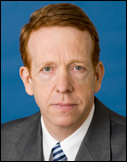Source: House Committee on Foreign Affairs
 For the past 25 years, the United States Agency for International Development (USAID) has devoted more resources, energy, and attention to aiding democracy than any other organization in the world. In testimony before the House Foreign Affairs Committee, Thomas Carothers says that despite making important contributions to democracy in dozens of countries around the world, USAID’s democracy work falls short in several damaging ways.
For the past 25 years, the United States Agency for International Development (USAID) has devoted more resources, energy, and attention to aiding democracy than any other organization in the world. In testimony before the House Foreign Affairs Committee, Thomas Carothers says that despite making important contributions to democracy in dozens of countries around the world, USAID’s democracy work falls short in several damaging ways.
U.S. Policy Recommendations:
- Reduce bureaucratization: USAID’s basic operating procedures are a study in dysfunctional bureaucratization. USAID needs to undertake a thorough process of de-bureaucratization to increase flexibility, speed, adaptability, and innovation. For such reforms to succeed, it is critical that the State Department, White House, and Congress resist the tendency to think that stricter controls, more regulations, and tighter procedures necessarily lead to better performance.
- Increase local ownership of projects: USAID’s insistence on using U.S. organizations at every step in the process reduces local attachment to democracy assistance projects and undermines long-term sustainability. USAID must therefore improve the way it partners with local actors, giving them substantial influence in determining goals and the methods employed to achieve them.
- Integrate democracy assistance more tightly into USAID’s core mission: Democracy programs receive far less attention and support than socioeconomic work. Strengthening USAID’s capacity to provide democracy assistance will require clear leadership from the organization’s senior-most officials, along with specific measures, including an expanded democracy assistance budget and a greater number of democracy and governance positions in USAID’s country missions.
While U.S. democracy aid has grown in amount and sophistication over the last two decades under Republican and Democratic administrations alike, Carothers concludes that American democracy promotion efforts can achieve their full potential only by reforming USAID. Doing so, he writes, would “be a viable signal that the Obama administration is moving beyond its apparent caution on democracy promotion to forge foundational changes.”





